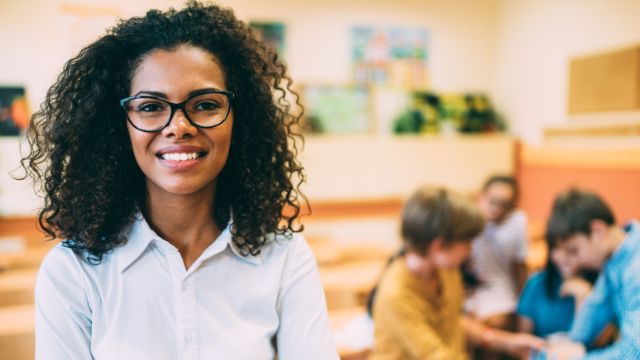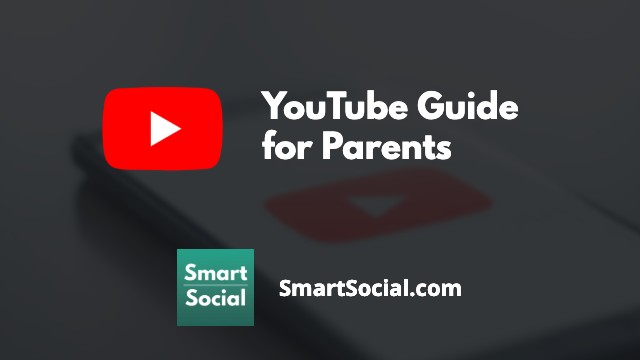"I Was Just Kidding!" - Things Bullies Say in the Principal's Office
Green Zone App
(Click here to learn more)
Dangerous Social media challenge
(Click here to learn more)
Red Zone App
(Click here to learn more)
Gray Zone App
(Click here to learn more)

In this podcast episode, Josh sat down with Mona Merlo who is the principal of SATO Academy. They discussed digital safety topics kids struggle with, like the number of hours kids are spending on social media, things bullies say, what "just kidding" means to kids, and tips for parents when it comes to balancing screen time.
Listen to this episode on our podcast:
Key takeaways about things bullies say and balancing screen time
- Incidents where students say, "we were just kidding" never end well
- Too much screen time comes down to a lack of structure of productive activity at home. Kids will say there's nothing else to do when there are plenty of other things to do
- Technology is here to stay. Students need to learn how to use technology in a productive and purposeful way
What is the number one thing bullies say?
"We were just kidding," is always the number one line that students tell me. What I tell students is that if you start with "just kidding" the situation isn't going to end well. Especially if the other person is not originally in on the joke. Even if they are in on the joke doesn't mean they want it publicized to everyone else.
How does social media affect students at school?
Students spend a lot of time on social media; even sneaking it during class time. Our students are very much high tech. We're always on computers or some type of screen. As a school, we provide these tools for our students but they still manage to get into their social media during school. Texting each other even though we do a very good job of trying to keep their phones out of their hands and backpacks. Students will slip their phones into their pockets. They will still slip it out and be texting each other or screenshotting during class. We have seen it on TV where students are recording teachers. That is my number one communication with my teachers: no phones in the classroom. We have the technology we need. It is for your own safety as well as that of the students.
What should parents do when their kids go to bed with their phones?
It is really hard to get kids to let go of their phones, even while they're sleeping. My own children, want their phone charging so that they can pick it up in the morning. They use it as the alarm clock. Being able to design a system at home that puts it within the parent's control and not the kids' control is really important. Some students will wake up in the middle of the night to go on their phones and text their friends. I have seen parents come in with the bill of the timeframes, where students were texting each other at 2:00 AM. I have parents emailing me, calling me, saying my child was up till 2:00 AM doing homework. My question is what were they doing from 3:00 to 10:00 PM which generally tends to be socializing on social media, online gaming, and the other activities.
How can parents get more involved?
Monitor the completion of the homework. Keep track of how, when, and where. Homework should be completed out in the open where a parent can see. When not being held accountable, students can say it took them two hours and they're still not done with their homework. When they were working in their room, they likely had multiple tabs open and spent only a fraction of the time focused on the work.So, put students in a central location when they're doing homework. You can check in with them frequently to track their progress and monitor the completion of their homework. I think parents would see a direct relation to less time spent on homework, more productive time, and better quality of work.
How can parents teach students to balance screen time?
I struggle with this myself because I too am a parent of a 12-year-old and a 14-year-old. I think what it comes down to is a lack of structure of productive activity at home. Kids will say there's nothing else to do when there are plenty of other things to do. Reconnect with your kids. Talk to them. Watch a program together. If they're watching YouTube videos that they are interested in, put them up on the Smart TV. Watch it with them. There are other means of getting that screen time, being productive, and still meeting the needs of the interests of your children.
How can teachers use technology in the classroom?
Teachers should be structured with the work and should effectively monitor what the students are doing. We focus on what we're learning, why we are learning it and how we will show what we have learned. I visited classrooms where it's extremely well done. It's very professionally handled, students are 100% productive. I've been in classrooms where it's very loosely structured. Students will be off task on their screens and teachers won't be monitoring it. It really comes down to us as administrators setting the expectation for technology in the classroom. As our teachers become more and more tech savvy we need to continue supporting that technology is here to stay. Technology needs to be used in a productive and purposeful way.
How can schools motivate kids to have productive screen time?
One thing we do here at our school is have student outcomes. One of our primary student outcomes is that these students graduate from our school being professional, industry accomplished technician students. This has become our launchpad. Everything a student does from coming to class prepared to work, to how they dress, speak, and work in a collaborative group are their industry soft skills. This is something we promote that students can articulate. Part of this is managing your time, managing your tech, and managing yourself. Be cognizant of what your purpose is as a school and what you want students to leave your school going to college and industry with.
How can parents monitor their child's social media?
Be cognizant of what your child is doing. It's tough to monitor your children's phones, to see who they are communicating with, and what they are doing. Most kids are ahead of adults when it comes to technology. Students are not afraid to try new things. As parents, our plates are full and our time is limited. Talk to your kids. They will talk to you. They will tell you what's going on. Anything that's come to my attention has been brought to me because of students. Whether they were the ones being bullied or they saw it online, they knew they needed to come to me. I think the number one thing parents need to be aware of is the whole SnapChat world. Students believe their Snapchat content disappears once it's been viewed. If it's been screenshotted, it will live forever. You have no control over something once you put it out there. You have no control over where it will land, stay, and grow. Be very cognizant of what you are posting online.
Protect your family and enter for a chance to win cool prizes
Become a member or log in to learn more on this topic
Protect your family and enter for a chance to win cool prizes

., start learning from this page to earn points!*
Hello, I'm Josh, the founder of SmartSocial.com.
Don't leave this page until you fill out our feedback form that will appear after you learn from the resources...
Here are some of the latest resources at SmartSocial.com
Become a Very Informed Parent (VIP) to get our social media suggestions in your email every Tuesday & Thursday.



Hello, I'm Josh, the founder of SmartSocial.com. Protect your family by taking my 1 minute quiz
This quiz will help you understand how safe your family is


Schools & Districts: Partner with us to protect your community online
Our remote presentations (and website) teach over a million parents and students each year how to be safe so they can shine online. We teach students how their accounts can be used to create a portfolio of positive accomplishments that impress colleges and employers.


Join Our Smart Social Podcast
each week on iTunes
With over 500 episodes, Josh Ochs interviews psychologists, therapists, counselors, teachers, and parents while showing you how to navigate social media to someday shine online.
Listen on:



.jpg)

.jpg)

_.jpg)
.png)